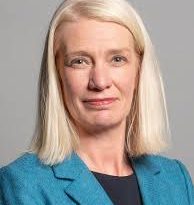Bob Stewart – 2022 Speech on the West Balkans and the Council of Europe
The speech made by Bob Stewart, the Conservative MP for Beckenham, in the House of Commons on 16 November 2022.
Without doubt, the crucible and cockpit for all crisis in the western Balkans is Bosnia. This country has 3.2 million people, ethnically south Slav in nature, but split into three basic religions. Muslims make up 51%, and they are often called Bosniaks. Eastern Orthodox people represent 31%—often called Bosnian Serbs. Roman Catholics represent about 15%—normally called Bosnian Croats.
In 1992, the Bosnian Serbs attacked their neighbours, seizing large tracts of land, which they ethnically cleansed of non-Serbs. As the war went on, the Croats and Muslims also carried out their version of ethnic cleansing. An estimated 2 million people were driven from their homes. In September 1992, the United Nations authorised the deployment to Bosnia of a protection force, UNPROFOR. The UN troops were often called peace- keepers, but actually that was not their role. There was no peace to keep in Bosnia and UNPROFOR did not have the mandate to enforce it either.
Although several British Army observers, medics and liaison staff were already on the ground in Sarajevo and elsewhere, Britain’s main contribution to UNPROFOR was a battle group based on the 1st Battalion, the Cheshire Regiment and a reconnaissance squadron of the 9th/12th Lancers. Around 2,400 troops deployed under Operation Grapple, which is what it was called, in November 1992, and I led it.
Our military has been directly involved in Bosnia since then, and 59 service personnel have lost their lives trying to help the country, among them my escort driver, Lance Corporal Wayne Edwards, and my interpreter, Dobrila Kalaba, who was deployed by us although technically not in the Army. Both were shot in the head, and I was shot in the leg. It did not seem to make much difference to me—I am still here—but I am very sad about the other two. Unsurprisingly, therefore, I have a deep personal connection to Bosnia, which I retain to this day.
The war, which started in 1992 when I was first there, continued until the massacre of Srebrenica in July 1995 and ended with the Dayton peace accords in 1996. That stopped the fighting and established a triumvirate of uneasy power sharing between the three major sides: Bosnian Serbs, Bosnian Croats and Bosniaks. Dayton was supposed to last only a few years until politics could be adjusted to make Bosnia a somewhat democratic and viable state, but the Dayton arrangements have become the status quo, and they are simply cracking at the seams.
The Bosnian Serbs in so-called Republika Srpska are seriously threatening to break away, and the Bosnian Croats are also making similar growling noises. If that happens, almost all authorities on the region believe we could easily see the renewal of civil warfare in Bosnia. Between 1992 and 1996, approximately 200,000 people were killed in that war and, as I have mentioned, 2 million people were displaced. That tragedy must not be repeated.
I believe that we, the British, are in a good position to influence what goes on in Bosnia. Our reputation there is quite high as a result of the actions of our soldiers over the years, as well as the continued interest that we hold in the country—witness the fact that Sir Stuart Peach is the representative there, and a good one too. In my experience, the one thing Bosnians respect is good, motivated and professional soldiers on the ground, who know what they are doing. I do not suppose that it will come as a surprise to colleagues that I believe that we could go in there again.
Currently, we have very few military forces on the ground there and we do not contribute to the so-called EUFOR, the European Union Force in Bosnia and Herzegovina, which is utterly and completely useless and does nothing but wander around the country, but we have a few staff officers at the nascent NATO headquarters recently established there. It would be a hugely significant signal if we were to send a British battle group to Bosnia under NATO command. I suggest that should happen, and soon.
My interest in Bosnia has not waned over the years. I have been there twice this year and will return again on 8 December. As my friend, the hon. Member for Rochdale (Tony Lloyd), has already mentioned, it is a tragedy that 170,000 people left Bosnia last year. They were mainly youngsters. Consider that 170,000 as a percentage of the population of 3.4 million. They are heavily bleeding the people who could be the future of Bosnia. Those people would not be leaving if they believed they had a future, so we, the British, who have invested so much in the country and have paid a blood price, should do all in our power to help that country of decent people sort itself out.



